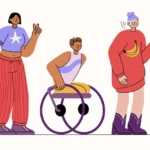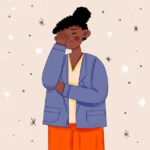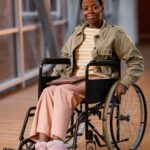Have you ever felt the paradox of love that shelters yet stifles? For me, growing up in a traditional Nigerian household, this duality defined much of my journey as a woman navigating life with multiple disabilities. My parents, particularly my mother, viewed my disabilities not just as challenges but as vulnerabilities, fearing that potential partners might exploit my perceived weaknesses. Their intentions, though rooted in love, often felt like invisible chains, limiting my personal growth and autonomy.

My mother, a proud daughter of the Niger Delta, was deeply influenced by her cultural and personal experiences. She harbored strong reservations about men from certain ethnic groups, including African Americans, Congolese, Igbos, and Yorubas, believing that they were unsuitable for me. These biases, while reflective of her protective instincts, underscored the societal prejudices that often cloud the opportunities available to women with disabilities.
To assert my independence within these constraints, I often resorted to secrecy in my romantic endeavors. While this approach allowed me a sense of agency, it also carried an emotional cost. Guilt and regret lingered, as I realized how much I had allowed my mother’s fears to shape my choices, leading to missed opportunities for genuine connection. This tension is a familiar narrative for many Nigerian daughters grappling with parental expectations in their personal lives.
In time, I began to unpack the layers of fear and misconception that had influenced my upbringing. While my mother’s intentions were protective, they were also steeped in stereotypes—the notion that women with disabilities are either asexual or incapable of sustaining meaningful relationships. These harmful narratives are pervasive, denying women like me the right to love and be loved authentically.
Today, I celebrate the strength I’ve found in reclaiming my story. I’ve embraced self-advocacy as a cornerstone of my journey, recognizing that my disabilities do not diminish my worth. This realization has empowered me to seek and nurture relationships rooted in mutual respect, empathy, and understanding. I now approach love with a sense of openness and freedom, unshackled by cultural biases and familial apprehensions.
Through my experiences, I’ve learned the transformative power of challenging societal stereotypes. By sharing my story, I hope to inspire other women facing similar circumstances to reclaim their autonomy and pursue relationships that honor their true selves. This is a call to rise above limiting beliefs and to redefine love on our own terms.
In closing, while my cultural and familial background has undeniably shaped my perspective, it no longer dictates my path. As a disabled Nigerian woman, I claim my right to love and respect, living authentically and guided by my principles. To anyone who feels confined by similar boundaries: may you discover the courage to embrace your autonomy and to seek love that truly reflects your worth.





